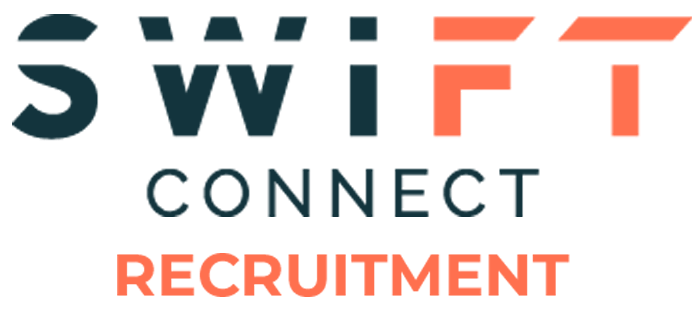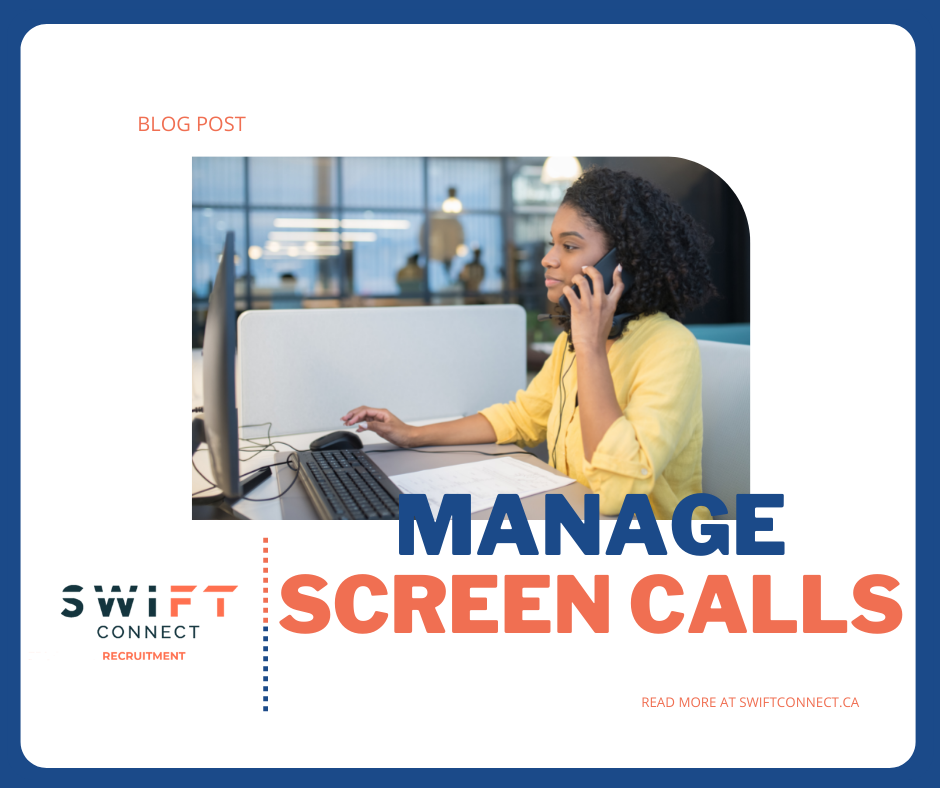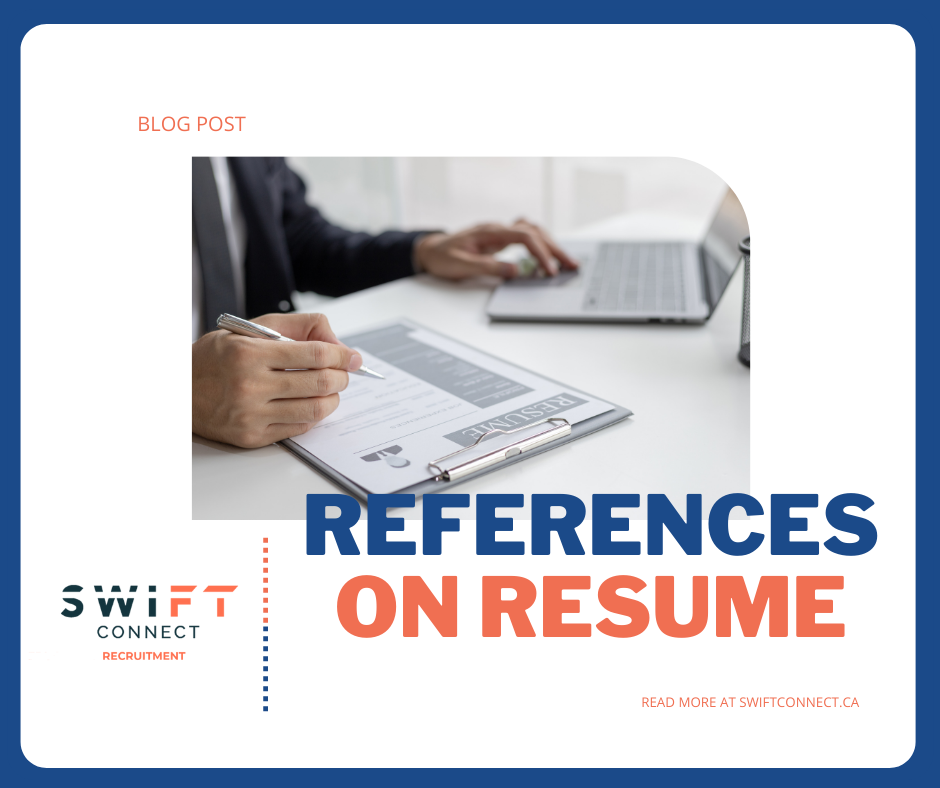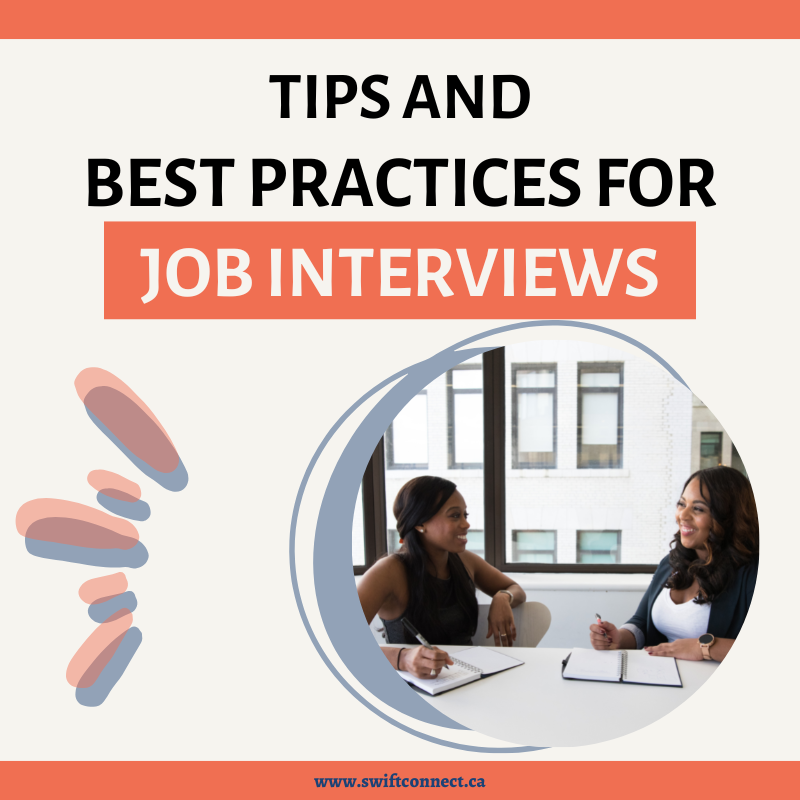How to Manage Screening Calls for a Job
A screen call is part of the recruitment process. Not every employer will do this, however, it is important to prepare and understand a phone screening call. The call is typically used as a pre-interview to allow the employer to examine your qualifications before progressing to a formal interview.
HOW TO PREPARE?
It is hard to prepare for a screening call as they are unexpected for the job seeker. However when you are sending your resume to companies, make sure to really understand what they are looking for. Take the time to read the job post to find out about the company as well as the skills and qualifications required for the position.
Know what companies you have applied to and the job title. If a recruiter mentions their company name and you do not remember them or the job, then it is very off-putting for the recruiter. As well, if you mention “I have applied to so many jobs, I can’t remember yours” that will not translate well to their eyes. To combat this, save the job post as a doc doc on your computer or print it out. This will be easy to access when you receive a call. Also, it is good practice to have the resume and/or cover letter you used in the application to help.
Make sure that your voicemail is set up and the message is professional. If your voicemail is not set up, then the recruiter will be unsure if they reached the right person. This can have a negative outcome as it shows that you have not taken the time to do a simple task. If you do have a voicemail but it is unprofessional, then it is likely that the recruiter will not even leave a message.
RECEIVING THE CALL
When you are applying for jobs, it is important to answer any phone calls. We understand that most people do not answer unknown callers anymore because of the abundance of spam, but if you are on the job search, answer every call. Make sure to answer professionally and calmly.
If you are outside when you receive a call or are busy doing a task, you can ask for their name and phone number to call them back. However, it is important to give a timeframe on when you are available to call back, ie. in 15 minutes or at 3pm. It is best not to continue the call when there are distractions around you, this is a private conversation that you need to focus on.
If you are at home and available, take the call! Get your resume, cover letter, and job post handy to refer back to when speaking with the employer. This way you are looking at the same information and it is easy to answer a specific question. However, if they ask you a question that you mention in your resume or cover letter, do not read it word from word. Personalize it and re-word your answer.
TIPS:
- Do not take the call on speaker phone.
- Do not hide information, be transparent and give all the information.
- Be honest for gaps in employment or why you left a job.
- Be detailed in your answer, try not to be vague.
- Relax and be professional.
COMMON QUESTIONS
Below are a list of common questions that an employer may ask you during a screening call.
- Why are you leaving your current / last position?
- Why did you apply to this role? What interested you about our job posting?
- What are your salary expectations?
- How do you manage time?
- How do you handle stress in the workplace?
- What are your biggest strengths / weaknesses?
- Tell me about a time where you had to complete a project in a group. Was it a good or bad experience? Why?
- Have you had to deal with conflict in the workplace? How did you handle it? How was it resolved?
- Tell me about a time where you took initiative.
- General inquiry about job gaps, industry changes.










